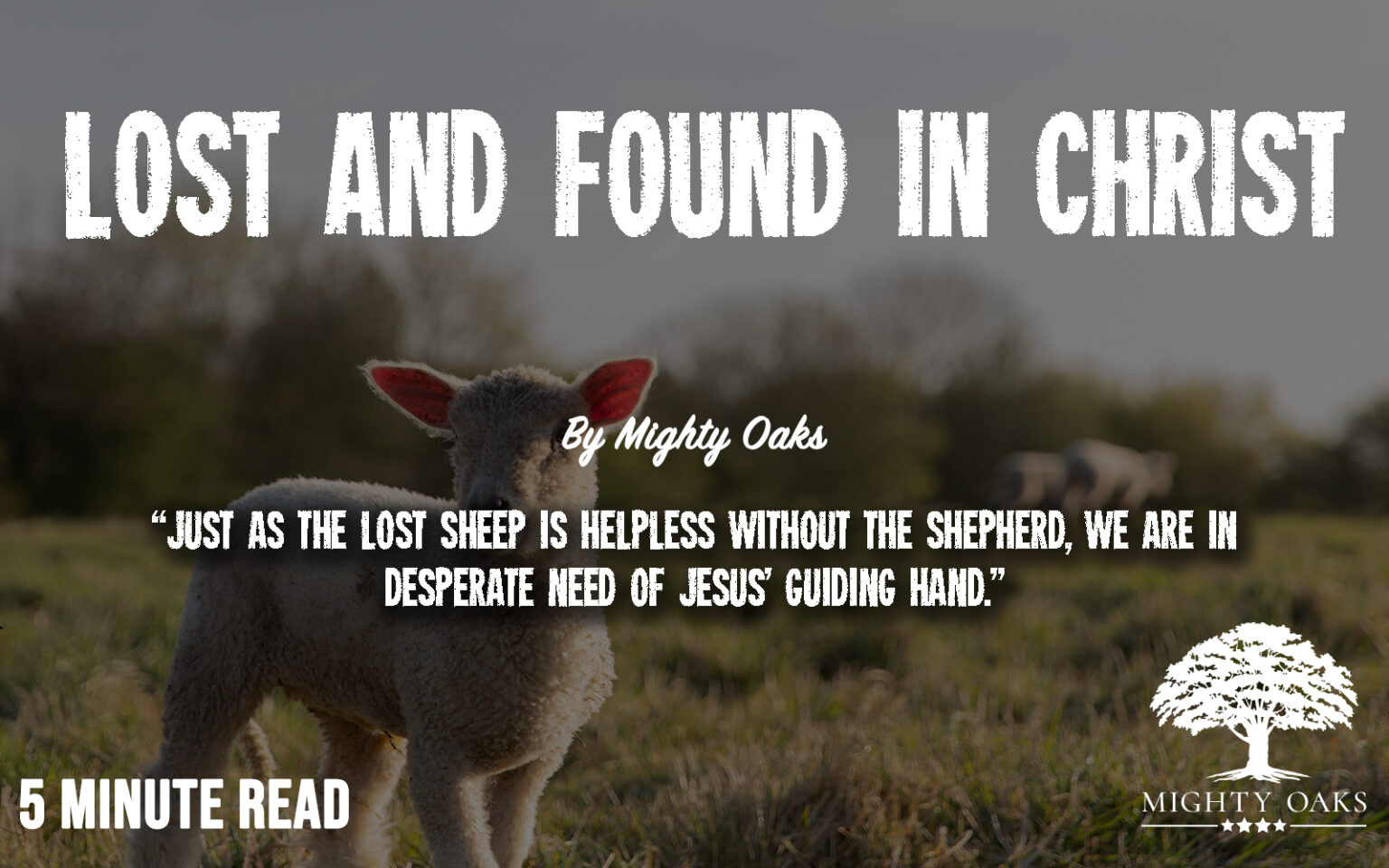In the depths of our hearts, many of us have experienced the painful grip of shame. It’s a heavy burden that can make us feel isolated, unworthy, and lost. Yet, within the pages of the Bible, we find a powerful narrative that speaks directly to these feelings–the Lost Parables. These parables, found in the book of Luke, is a profound illustration of Christ’s relentless love and the transformative journey from shame to redemption.
Table of Contents
The Weight of Shame
Shame is a powerful emotion that can distort our self-perception and sever our connection with others and God. It whispers lies, telling us that we are beyond forgiveness, that our past mistakes define our worth. This toxic cycle can lead to a sense of profound lostness, where we wander aimlessly, seeking solace in the wrong places.
The Parable of the Lost Sheep
In Luke 15: 4-7, Jesus shares the parable of the lost sheep:
“Suppose one of you has a hundred sheep and loses one of them. Doesn’t he leave the ninety-nine in the open country and go after the lost sheep until he finds it? And when he finds it, he joyfully puts it on his shoulders and goes home. Then he calls his friends and neighbors together and says, ‘Rejoice with me; I have found my lost sheep.’ I tell you that in the same way there will be more rejoicing in heaven over one sinner who repents than over ninety-nine righteous persons who do not need to repent.”
This parable vividly portrays the heart of Christ. He is the Good Shepherd who seeks out the lost, not content to leave them in their wandering. His love is personal and intentional, reaching out to each of us, no matter how far we’ve strayed.
Jesus’ Response to the Pharisees
The context in which Jesus told this parable is crucial. The Pharisees and scribes were criticizing Jesus for associating with sinners and tax collectors. They couldn’t understand why a rabbi would spend time with those considered unclean and sinful. Jesus’ response through this parable–and others– was a scolding rebuke to their judgmental attitudes. He wanted to emphasize that His mission was to seek and save the lost, showing that God’s heart is one of mercy and grace, not condemnation.

Being Found in Christ
The journey from shame to redemption begins with recognizing our need for a Savior. It’s a humbling realization that we cannot find our way back on our own. Just as the lost sheep is helpless without the shepherd, we are in desperate need of Jesus’ guiding hand. When we turn to Christ, acknowledging our sins and our need for His grace, we open ourselves to the transformative power of His love. In that moment of surrender, Jesus lifts us onto His shoulders, carrying us back to the fold.
Rejoicing in Redemption
The story of the lost sheep reminds us that there is immense joy in heaven when one sinner repents. It is a celebration of grace, a testament to the boundless love of God. As we embrace our identity in Christ, we are called to extend that same love to others, guiding them toward the Good Shepherd who longs to welcome them home.In your journey, remember you are not alone. Christ is with you, seeking you out with relentless love. Let go of the shame that holds you back and embrace the freedom that comes from being found in Him. At the Mighty Oaks Foundation, we stand with you, ready to walk alongside you on this path of redemption and restoration.
Conclusion
Shame can be a powerful force, but the love of Christ is even more powerful. Through the parable of the lost sheep, we see the heart of Jesus– a Shepherd and a Father who seek the lost, lift them up, and rejoice in their return. At Mighty Oaks, we are dedicated to helping individuals experience this transformative love and find their way back to the arms of the Good Shepherd. May your journey from shame to redemption be filled with the joy of being found in Christ.






